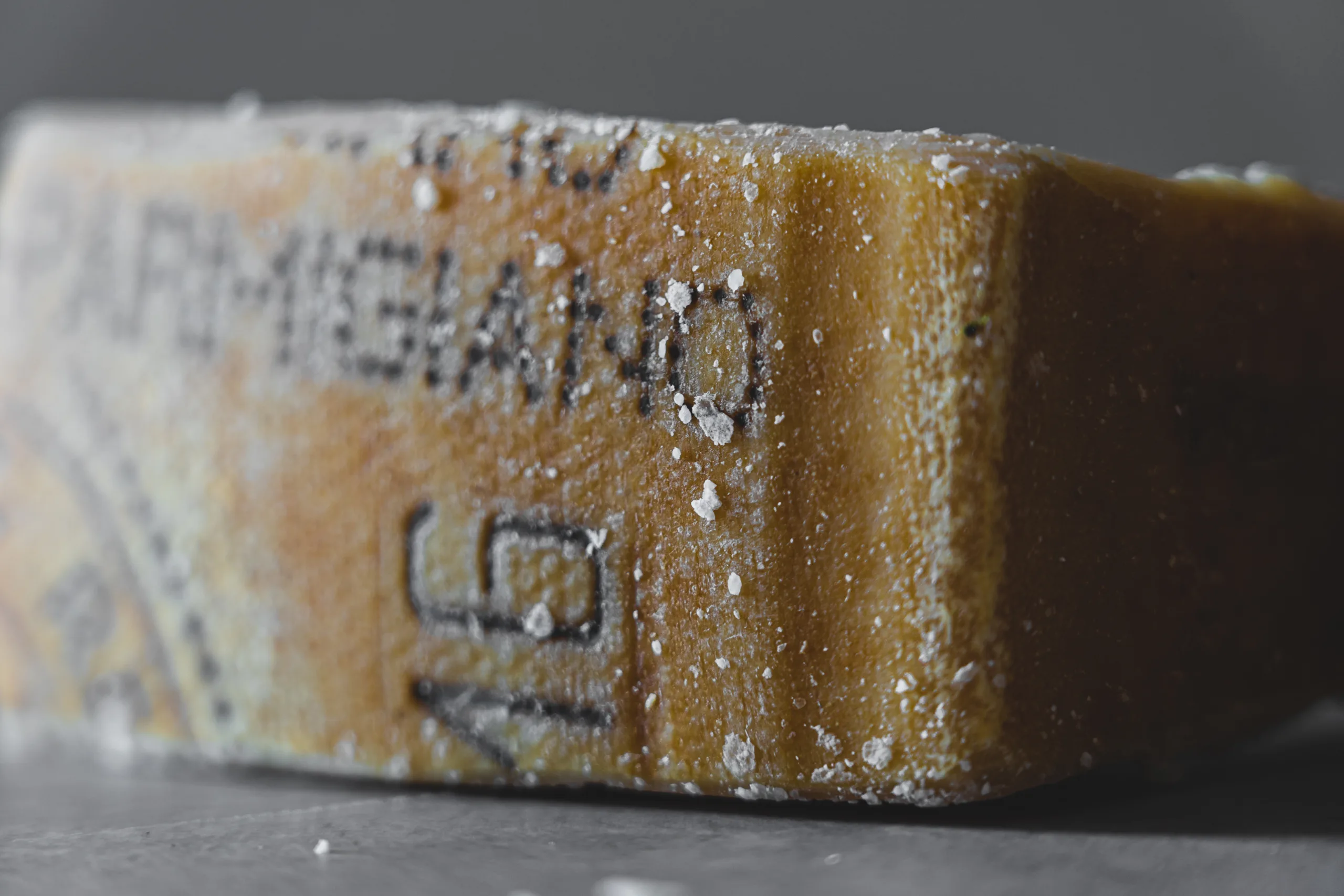Is Parmesan Cheese Low Fodmap?
For those with irritable bowel syndrome, following a low FODMAP diet can be challenging, especially when it comes to choosing snacks and ingredients for meals. One of the most common questions is whether Parmesan cheese is low in FODMAPs or not. This article provides an answer to that question, along with some tips to make following a low FODMAP diet easier.
The article will discuss what FODMAPs are and explain why they can be so problematic for those with IBS. It will then provide an answer as to whether Parmesan cheese is low in FODMAPs or not, and explain why it can still be included in a low FODMAP diet. Finally, the article will offer some tips for making it easier to follow a low FODMAP diet on a daily basis.Yes, Parmesan cheese is low FODMAP.
FODMAP
FODMAP stands for Fermentable Oligosaccharides, Disaccharides, Monosaccharides and Polyols. It is a group of short-chain carbohydrates that are poorly absorbed in the small intestine. FODMAPs are found in many foods, such as fruits, vegetables, grains, legumes, dairy products and processed foods. People with gastrointestinal disorders such as Irritable Bowel Syndrome (IBS) may find that limiting their intake of FODMAPs helps to reduce symptoms such as abdominal pain, bloating and diarrhea. People with IBS may benefit from following a low-FODMAP diet which involves avoiding certain high-FODMAP containing foods and replacing them with low-FODMAP alternatives. By doing so, they can enjoy a variety of nutritious foods while reducing their symptoms.
A low-FODMAP diet should be undertaken with guidance from a registered nutritionist or dietitian to ensure adequate nutrient intake. It is also important to keep in mind that not all FODMAPs cause symptoms for everyone and it is important to identify which FODMAPs are causing your individual symptoms in order to be successful on the diet.
Irritable Bowel Syndrome (IBS)
Irritable Bowel Syndrome (IBS) is a common gastrointestinal disorder that affects the large intestine. It is characterized by abdominal pain, cramps, bloating, gas, diarrhea, and constipation. IBS can be caused by a variety of factors such as stress, diet changes, hormonal changes, food intolerances, or an imbalance of gut bacteria. IBS is often diagnosed based on self-reported symptoms and medical history. Treatment for IBS may include dietary changes, stress management techniques, and medications to reduce pain or regulate digestion. In some cases, lifestyle modifications may help reduce symptoms of IBS.
It is important to note that IBS does not cause any permanent damage to the intestines and is not associated with an increased risk of other diseases or conditions. However, some people with IBS may experience severe symptoms that can interfere with daily life or even lead to depression or anxiety. If you are experiencing any symptoms associated with IBS it is important to speak to your healthcare provider for diagnosis and treatment options.
Click here to preview your posts with PRO themes ››
Abdominal Pain
People with IBS typically experience abdominal pain or discomfort that is often relieved after a bowel movement. The abdominal pain may be described as cramping, bloating, gas, and/or a feeling of fullness in the abdomen. It can range from mild to severe and can be intermittent or continuous. Sometimes the severity of the pain is related to eating certain foods or having a bowel movement.
Changes in Bowel Habits
Changes in bowel habits are common with IBS. Some people may experience constipation, meaning they have fewer than three bowel movements per week and difficulty passing stools. Others may have diarrhea or loose stools (more than three times per day) that can be difficult to control. Those with IBS may also alternate between constipation and diarrhea.
Diarrhea
Diarrhea is more common in those with IBS-D (diarrhea predominant) type of IBS, but it can also occur in those with other types of IBS as well. Abdominal pain, cramping, bloating, an urgent need to go to the bathroom and sometimes even fecal incontinence are all symptoms associated with diarrhea associated with IBS.
Constipation
Constipation is more common in those with IBS-C (constipation predominant) type of IBS, but it can also occur in those with other types of IBS as well. Abdominal pain, bloating, straining during a bowel movement, hard or lumpy stools and feeling like you still need to go again after you’ve already had a bowel movement are all symptoms associated with constipation associated with IBS.
Gas and Bloating
Excessive gas production or difficulty passing gas is another common symptom of IBS. In combination with the bloating caused by increased intestinal gas production this symptom can cause significant discomfort throughout the abdomen.
How Can Low FODMAP Diets Help IBS Symptoms?
Irritable Bowel Syndrome (IBS) is a common disorder that affects the large intestine. Symptoms of IBS may include abdominal pain, bloating, gas, constipation, and diarrhea. Fortunately, research has shown that a low FODMAP diet can be beneficial for those suffering from IBS symptoms.
FODMAP stands for Fermentable Oligosaccharides, Disaccharides, Monosaccharides, and Polyols. These are a group of short-chain carbohydrates found in many common foods such as wheat and dairy products. For individuals with IBS, these carbohydrates can be difficult to digest and can cause bloating and other uncomfortable symptoms. A low FODMAP diet eliminates or significantly reduces the intake of these foods to help reduce the symptoms associated with IBS.
Studies have shown that following a low FODMAP diet can significantly reduce IBS symptoms in some individuals. A low FODMAP diet typically eliminates high-FODMAP foods such as wheat and dairy products for several weeks or months before reintroducing them slowly back into the diet. This helps individuals identify which foods may be causing their symptoms so they can make informed decisions about which foods to include in their diets going forward.
Click here to preview your posts with PRO themes ››
It is important to note that a low FODMAP diet should not be used as a replacement for medications prescribed by your doctor or other treatments recommended by your doctor to manage IBS symptoms. Additionally, it is important to consult with a registered dietitian before beginning any new dietary regimen to ensure it meets your individual needs. However, when used correctly in conjunction with other treatments recommended by your doctor, a low FODMAP diet may help reduce the symptoms associated with IBS and improve overall quality of life for those suffering from this condition.

Other Types of Cheese Low in FODMAPs
Cheese can be a tricky food when it comes to the low FODMAPs diet. Many cheeses contain FODMAPs like lactose, which can trigger digestive problems for those who are sensitive. Fortunately, there are some cheese varieties that are low in FODMAPs and can be enjoyed without triggering any symptoms. Hard cheeses such as cheddar, Swiss, and Parmesan are usually low in FODMAPs, as well as many soft cheeses such as brie, gouda, goat cheese, feta and ricotta. Cream cheese is also generally considered to be low in FODMAPs if consumed in small amounts. It is important to check labels carefully when purchasing any type of cheese as other ingredients may be added that contain higher levels of FODMAPs. Avoid blue cheese and processed cheeses like American or Velveeta as they often contain high levels of lactose.
In addition to traditional cheese varieties, there are also some vegan and dairy-free options available on the market that are lower in FODMAPs. These include vegan cream cheese made with coconut oil or soy milk, plant-based ricotta made with almonds or macadamia nuts, vegan feta made with tofu or chickpeas, and dairy-free cheddar made from rice or potatoes. While these types of cheeses may not taste exactly the same as traditional varieties due to the different ingredients used to make them, they can still provide a delicious alternative for those following a low FODMAP diet.
What are the Benefits of Eating Low FODMAP Foods?
Eating low FODMAP foods has a range of benefits for people with digestive issues. FODMAPs are small molecules found in certain foods that cannot be properly digested or absorbed, leading to discomfort and other issues in some people. Eating a low FODMAP diet can help people with digestive issues reduce their symptoms and improve their overall health.
A low FODMAP diet eliminates high-FODMAP foods, such as certain types of dairy, wheat, garlic, and onions, which can cause gas, bloating, cramping, and other digestive issues. By eliminating these foods from your diet and replacing them with low-FODMAP options like lean proteins and fruits and vegetables, you can reduce digestive symptoms.
In addition to reducing digestive symptoms, a low FODMAP diet may also help improve overall health. Studies have shown that a low FODMAP diet can reduce inflammation in the gut, which can help boost the immune system and improve digestion. Other studies suggest that following a low-FODMAP diet may also help reduce cholesterol levels and improve blood sugar control.
Click here to preview your posts with PRO themes ››
Overall, eating a low-FODMAP diet can be beneficial for people with digestive issues by reducing symptoms as well as improving overall health. This type of diet is also beneficial for those who are looking to maintain a healthy lifestyle or lose weight since it restricts unhealthy processed foods and encourages nutrient-dense meal options.
How to Avoid High FODMAP Foods When Eating Out
Eating out can be a challenge if you are following a low FODMAP diet. Many restaurants don’t provide information about ingredients, and it can be difficult to identify which foods contain high FODMAP ingredients. Fortunately, there are some strategies you can use to help ensure that you stay on track with your low FODMAP diet while dining out.
The first step is to do some research before you go out. Look up menus of the restaurants in your area and see if they have any dishes that are low in FODMAPs. You may also want to reach out directly to the restaurant and ask which dishes are suitable for a low FODMAP diet.
Once you’re at the restaurant, take some time to read through the menu carefully. Look for dishes that are naturally low in FODMAPs such as grilled meats, fish, and vegetables. If there are sauces or condiments listed with a dish, ask your server what ingredients they contain so you can make sure they don’t have high FODMAPs like garlic or onions.
It’s also important to be mindful of how food is prepared when eating out. Ask your server if the food is cooked with butter or oil as these may contain high FODMAP ingredients like garlic or onions as well. If possible, request that your food be cooked without these ingredients and seasonings added.
Finally, if you’re unsure about an ingredient or dish, don’t hesitate to ask questions! Your server should be able to provide you with more information about what’s in a dish so you can make an informed decision before ordering something that could trigger symptoms of IBS. With some careful planning and research, eating out while following a low FODMAP diet doesn’t have to be a challenge!

Conclusion
Parmesan cheese is a low FODMAP food because it is made from cow’s milk and salt. It contains trace amounts of lactose, but the amount of lactose present is low enough to be considered low FODMAP. As such, it can be enjoyed in small portions as part of a low FODMAP diet. It should be noted, however, that Parmesan cheese may contain other food additives or preservatives which could trigger a reaction in some individuals with IBS or other digestive sensitivities. Therefore, it is important to read labels and speak with your healthcare provider before consuming Parmesan cheese if you have any digestive sensitivities.
In conclusion, Parmesan cheese can be included in a low FODMAP diet in small portions. However, it is important to read labels and speak with your healthcare provider before consuming Parmesan cheese if you have any digestive sensitivities as other food additives or preservatives could trigger an adverse reaction.

